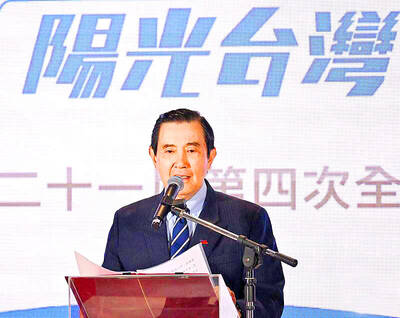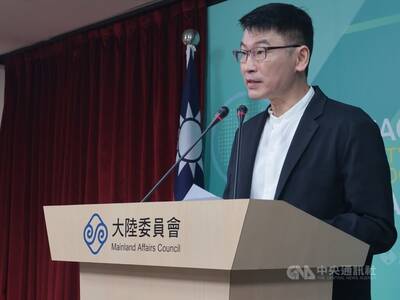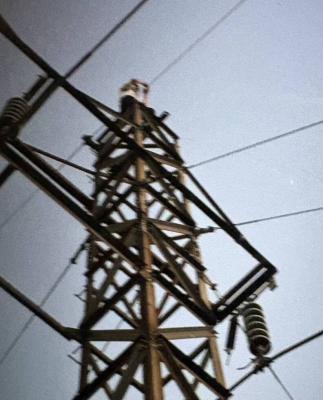Every minute that Taiwan is separate from China the likelihood increases that the nation will remain separate from China, Arthur Waldron, a professor of international relations at the University of Pennsylvania, told a forum on Capitol Hill on Wednesday.
He said he had great difficulty envisioning “in nuts and bolts terms” how unification would ever occur.
The forum entitled “Is Taiwan Defendable?” was held in a House of Representatives meeting room, and it was organized by the International Assessment and Strategy Center (IASC) and attended by congressional aides.
“Would Taiwan stop having a president? Would it stop having elections? Would it stop having a legislature?” Waldron asked.
“I just don’t see any of those things happening,” he said. “My own view is that China is probably going to change first.”
“In 30 years will there still be a standing committee of the politburo in Beijing?” he asked.
“I think it is quite unlikely, but I think that in 30 years there will still be an elected president of Taiwan,” he said.
Waldron was closing the forum in which Mark Stokes, executive director of the think tank Project 2049, discussed how submarines could change the balance of power in the Taiwan Strait; Richard Fisher, a senior fellow at IASC, argued that missile technology could deter invasion; and John Tkacik, another senior IASC fellow, discussed the legal and policy implications of expanding US weapons sales to Taiwan.
Waldron said there was currently an attempt within the “foreign policy elite” to normalize the US relationship with China and make it the same as the US relationship with democratic countries.
He said there was a suggestion that if only the US would do “the right sort of things” then all would be well with China, but he argued that if Taiwan was “stripped away,” then Japan would become isolated and the US would no longer be able to count upon Tokyo to follow either a peaceful or a pro-US policy.
He said that if Japan and South Korea were defendable, then Taiwan was just as defendable.
“Taiwan should be defended, unless we want to get a reputation for brutally abandoning our allies and being totally unreliable,” he said.
Stokes said that Taiwan had been on a 40-year quest to buy 10 to 12 diesel-electric submarines and that no other weapons system would do more to deter China from using force against the nation.
He said that submarines had the best chance of survival should China attack and they would “significantly complicate” any Chinese attempts at a blockade or invasion.
However, Stokes was not optimistic that the US or any other nation would sell submarines to Taiwan and supported the idea of Taiwan building its own.
Fisher said that following the decision by US President Barack Obama’s administration not to sell F-16C/D aircraft to Taiwan, there had been an “uptick” in pessimism.
He said that increasingly some Americans are saying Taiwan is not defendable and that at some point it would have to reach a political settlement with China.
Taiwan, he said, would lose its political freedoms “once the PRC [People’s Republic of China] gets its claws into that society and tears it apart.”
Fisher said there was an assumption that Taiwan would not be able to purchase enough military hardware to deter an attack by China, but this was not necessarily true.
He said if the US would not sell advanced F-16s to Taiwan, it should consider other weapons including a “Sensor Fuzed Munition” that is about the size of a hamburger.
It is fired as part of a missile or artillery shell, departs from the shell in mid-air, orientates itself and then, traveling at five times the speed of sound, finds its target and cuts right through it.
Fisher said the US had agreed to sell 20,000 of these to India for the price of about four F-16C/Ds.
“If Taiwan had 20,000 of these weapons it would greatly increase the island’s ability to deter a Chinese invasion force,” Fisher said.
Tkacik analyzed the laws governing US arms sales to Taiwan and concluded: “The US has a law, passed by Congress, that says it will make available to Taiwan whatever the heck it needs to defend itself. We are required to give them what they need. The world itself is a little different, but that is the law.”

‘ANGRY’: Forgetting the humiliations and sacrifices of ‘the people of the Republic of China’ experienced disqualified Lai from being president, Ma Ying-jeou said Former president Ma Ying-jeou (馬英九) yesterday criticized President William Lai (賴清德) over what he called “phrasing that downplayed Japan’s atrocities” against China during World War II. Ma made the remarks in a post on Facebook on the 80th anniversary of the end of World War II. Ma said he was “angry and disappointed” that Lai described the anniversary as the end of World War II instead of a “victory in the war of resistance” — a reference to the end of the Second Sino-Japanese War (1937-1945). The eight-year war was a part of World War II, in which Japan and the other Axis

The Mainland Affairs Council (MAC) yesterday announced a ban on all current and former government officials from traveling to China to attend a military parade on Sept. 3, which Beijing is to hold to mark the 80th anniversary of the end of the Second Sino-Japanese War. "This year marks the 80th anniversary of the end of World War II and the Republic of China’s victory in the War of Resistance [Against Japan]," MAC Deputy Minister and spokesperson Liang Wen-chieh (梁文傑) told a regular news briefing in Taipei. To prevent Beijing from using the Sept. 3 military parade and related events for "united

‘OFFSHORE OPERATIONS’: Also in Dallas, Texas, the Ministry of Economic Affairs inaugurated its third Taiwan Trade and Investment Center to foster closer cooperation The 2025 Taiwan Expo USA opened on Thursday in Dallas, Texas, featuring 150 Taiwanese companies showcasing their latest technologies in the fields of drones, smart manufacturing and healthcare. The Taiwan External Trade Development Council (TAITRA), the event’s organizer, said the exhibitors this year include Hon Hai Precision Industry Co (Foxconn), the world’s largest contract electronics manufacturer; AUO; PC brand Asustek Computer; and drone maker Thunder Tiger. In his opening speech, TAITRA chairman James Huang (黃志芳) said he expected Texas to become a world-class center for innovation and manufacturing as US technology companies from Silicon Valley and Taiwanese manufacturers form an industrial cluster

A 20-year-old man yesterday evening was electrocuted and fell to his death after he climbed a seven-story-high electricity tower to photograph the sunset, causing a wildfire on Datong Mountain (大同山) in New Taipei City’s Shulin District (樹林), the Taoyuan Police Department said today. The man, surnamed Hsieh (謝), was accompanied on an evening walk by a 20-year-old woman surnamed Shang (尚) who remained on the ground and witnessed the incident, capturing a final photograph of her friend sitting atop the tower before his death, an initial investigation showed. Shang then sought higher ground to call for help, police said. The New Taipei